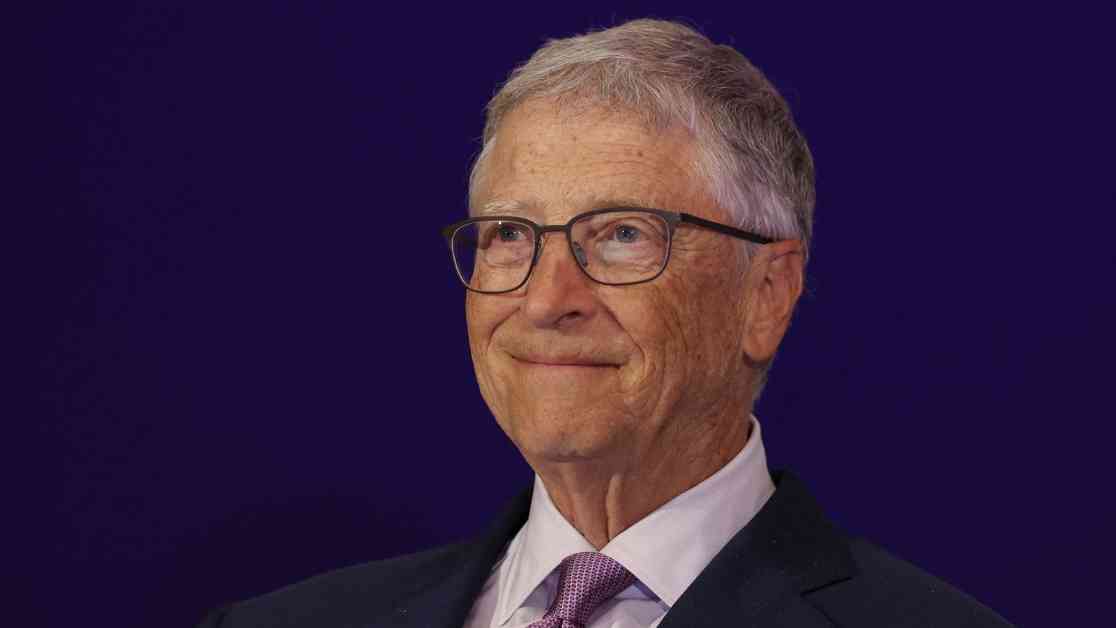Bill Gates, the renowned co-founder of Microsoft and one of the wealthiest individuals globally, recently shared a personal revelation in his memoir, “Source Code: My Beginnings.” In an excerpt published by The Wall Street Journal, the 69-year-old tech mogul reflected on his childhood and speculated that, if he were growing up today, he might have been diagnosed with a form of autism.
Gates candidly expressed that during his youth, his parents struggled to comprehend his intense focus on projects, difficulty with social interactions, and occasional social missteps. He noted that the understanding of diverse cognitive processes, now encapsulated by the term “neurodivergent,” was not prevalent in his early years, with the concept gaining prominence only in the 1990s.
The tech giant emphasized that his social skills and awareness of others’ feelings took time to evolve, attributing this growth to age, experience, and fatherhood. Gates, known for his extensive philanthropic efforts through the Gates Foundation, exemplifies how personal development can transcend individual challenges, leading to a broader impact on society.
The Journey of a Tech Icon
Bill Gates’s journey from a young, curious mind to a tech icon is marked by his unique cognitive wiring that shaped his innovative contributions. In an interview with CBS News, Gates revealed that his parents’ guidance and support were instrumental in nurturing his intellectual pursuits. His affinity for coding, evident from his teenage years, laid the groundwork for his groundbreaking work in technology.
Reflecting on his cognitive differences, Gates expressed gratitude for his neurodiversity, recognizing the pivotal role it played in his software development journey. Despite the challenges he faced due to his atypical cognitive processing, Gates embraced his distinctive thinking patterns, emphasizing the intrinsic value of his neurodivergent perspective.
Navigating Neurodiversity
The term “neurodivergent” encompasses a spectrum of cognitive variations, including conditions like autism spectrum disorder (ASD), attention deficit hyperactivity disorder (ADHD), and dyslexia. With approximately one in seven individuals estimated to be neurodivergent, the neurodiversity movement advocates for inclusivity and understanding of diverse cognitive profiles.
High-profile figures like Elon Musk, another tech magnate, have openly discussed their neurodivergent identities, contributing to raising awareness and dispelling misconceptions. Musk’s disclosure of his Asperger syndrome diagnosis underscored the multifaceted nature of neurodiversity, highlighting the diverse talents and perspectives within this community.
Embracing Neurodiversity in Society
In a rapidly evolving world that values innovation and creativity, embracing neurodiversity is crucial for fostering a more inclusive and equitable society. By recognizing and accommodating diverse cognitive styles, we can harness the unique strengths and talents of neurodivergent individuals, driving progress and innovation across various sectors.
As we celebrate the diverse cognitive landscape that enriches our collective human experience, let us honor the contributions of individuals like Bill Gates and Elon Musk, whose neurodivergent perspectives have reshaped the technological landscape. Through empathy, understanding, and advocacy, we can create a more inclusive world where every mind finds its place and purpose.
In conclusion, Bill Gates’s candid reflections on his neurodivergent identity serve as a poignant reminder of the power of embracing cognitive diversity in driving innovation and progress. As we navigate the complexities of the modern world, let us celebrate the unique talents and perspectives of neurodivergent individuals, recognizing their invaluable contributions to our shared future.




